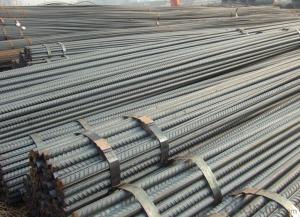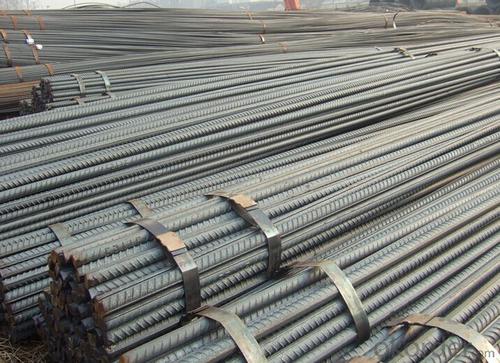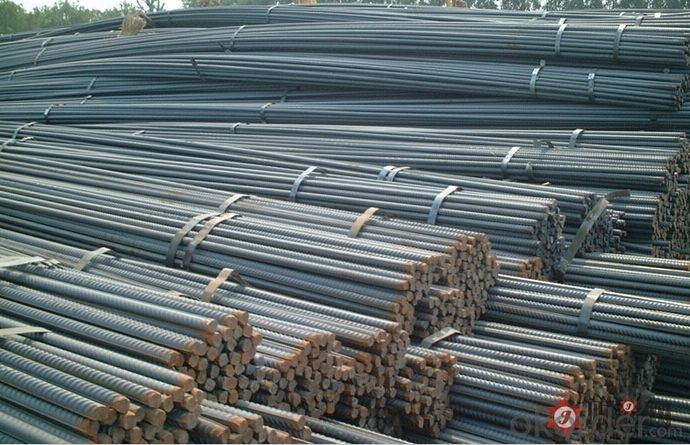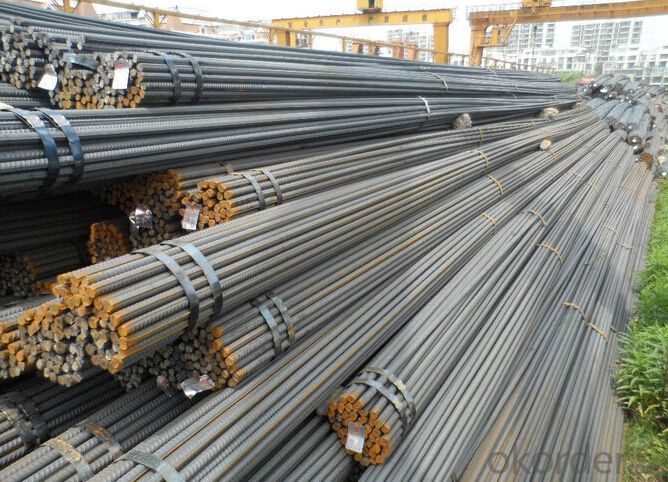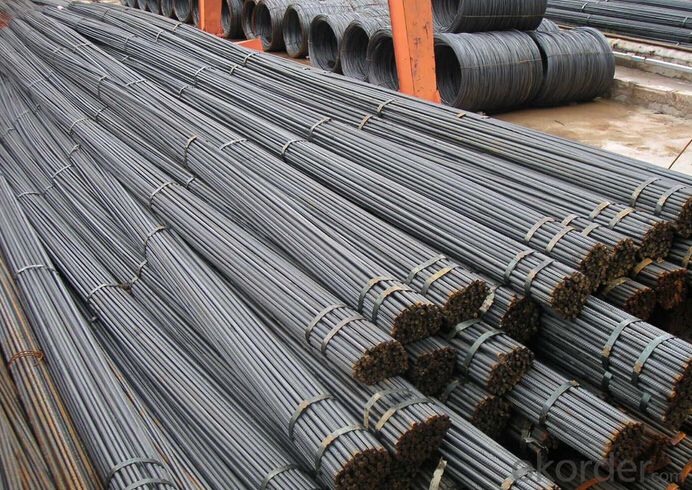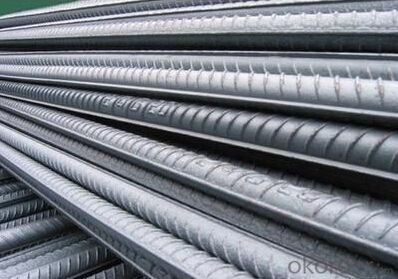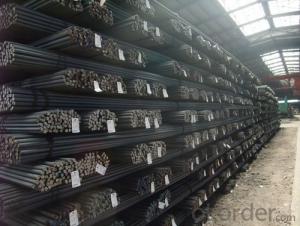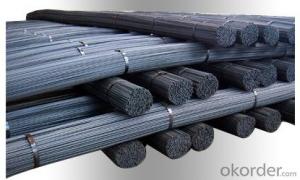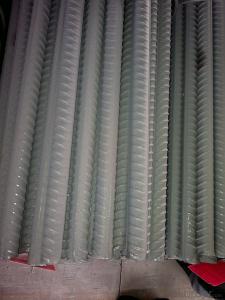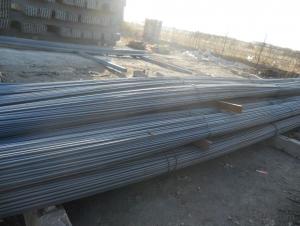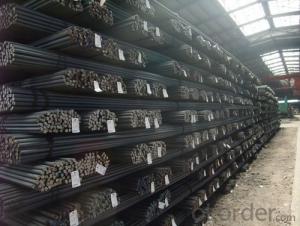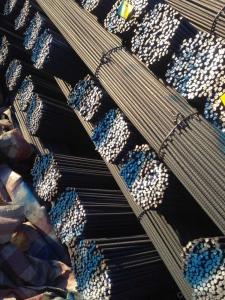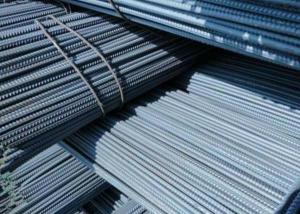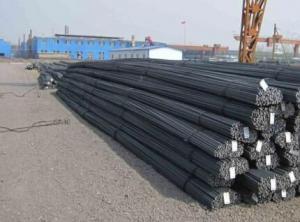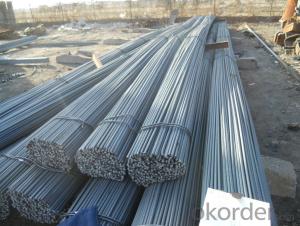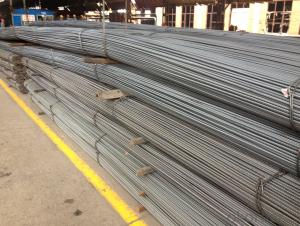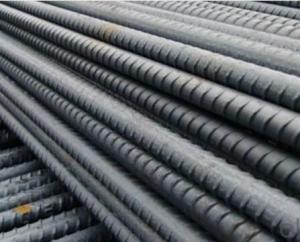Saudi Jeddah Makka Madina Steel Rebars Different Sizes
- Loading Port:
- Tianjin
- Payment Terms:
- TT OR LC
- Min Order Qty:
- 100 m.t.
- Supply Capability:
- 10000 m.t./month
OKorder Service Pledge
Quality Product, Order Online Tracking, Timely Delivery
OKorder Financial Service
Credit Rating, Credit Services, Credit Purchasing
You Might Also Like
Specification
Standard:
ASTM,AISI,JIS,API,EN,DIN,BS,GB
Technique:
Hot Rolled,Cold Rolled,Cold Drawn,ERW,Forged,Saw,Extruded,EFW,Spring
Shape:
U Channel,Square,C Channel,Hexagonal,Round,Rectangular,Oval,LTZ
Surface Treatment:
Galvanized,Coated,Copper Coated,Color Coated,Oiled,Dry,Polished,Bright,Black,PVDF Coated,Chromed Passivation
Steel Grade:
Q195,Q215,Q235,Q215B,Q235B,RHB335,HRB400,200 Series,300 Series,400 Series,600 Series,SS400-SS490,10#,20#,A53(A,B)
Certification:
ISO,SGS,BV,IBR,RoHS,CE,API,BSI,UL
Thickness:
8-32
Length:
12
Net Weight:
10
Saudi Jeddah Makka Madina Steel Rebars Different Sizes
Details of the Saudi Jeddah Makka Madina Steel Rebars Different Sizes
| Standard & Grade: | GB1499-98 : HRB335,HRB400,HRB500 |
| BS4449-1997 : GR460,GR500 | |
| CAN/CSA-G30.18-M92 : 400W | |
| ASTM A615 : Gr.40, Gr.60 | |
| Diameter: | 6mm;8mm;10mm;12mm;14mm;16mm;18mm;20mm;22mm;25mm;28mm;30mm;32mm;35mm;40mm |
| Length: | 6m,9m,12m |
| Packing: | Bundle packing |
| Origin: | China |
| Application: | Construction,Road,Machinery processing,Welding fields. |
| Delivery time: | 10-25 days |
| Shipment: | By bulk vessel or Container |
| Documents: | Mill Test Certificate,Commercial Invoice,Packing List,Certificate of Origin |
Company Introduction of the Saudi Jeddah Makka Madina Steel Rebars Different Sizes
CNBM International Corporation is the most import and export platform of CNBM group(China National Building Material Group Corporation) ,which is a state-owned enterprise, ranked in 270th of Fortune Global 500 in 2015.
With its advantages, CNBM International are mainly concentrate on Cement, Glass, Iron and Steel, Ceramics industries and devotes herself for supplying high quality series of refractories as well as technical consultancies and logistics solution.
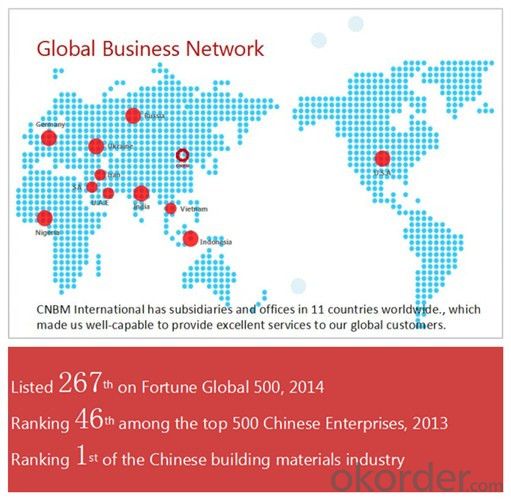
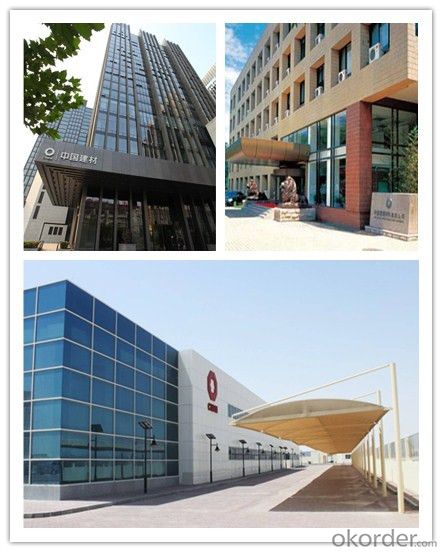
Packaging & Delivery of the Saudi Jeddah Makka Madina Steel Rebars Different Sizes
| Packaging Detail | Sea worthy packing /as per customer's packing instruction |
| Delivery Detail | 15 ~ 40 days after receiving the deposit |
FAQ
| Are you a trading company or manufacturer? | Manufacturer |
| What’s the MOQ? | 1000m2 |
| What’s your delivery time? | 15-20 days after downpayment received |
| Do you Accept OEM service? | Yes |
| what’s your delivery terms? | FOB/CFR/CIF |
| What's the Payment Terms? | 30% as deposit,70% before shipment by T/T |
| Western Union acceptable for small amount. | |
| L/C acceptable for large amount. | |
| Scrow ,Paybal,Alipay are also ok | |
| Why choose us? | Chose happens because of quality, then price, We can give you both. Additionally, we can also offer professional products inquiry, products knowledge train (for agents), smooth goods delivery, excellent customer solution proposals. |
| What's your available port of Shipment? | Main Port, China |
| What’s your featured services? | Our service formula: good quality+ good price+ good service=customer's trust |
| Where are your Market? | Covering more than 160 countries in the world |
- Q: How long do steel rebars last?
- Steel rebars typically have a long lifespan and can last for several decades, with proper maintenance and protection against corrosion.
- Q: Do l 8, three grade steel have discs?
- Yes, but because of the higher grade of the three screw thread, they are straight bars. It's not necessary to use grade three for 8 mm.
- Q: Can steel rebars be used in stadium construction?
- Steel rebars are indeed applicable for stadium construction. These reinforcing steel bars are frequently utilized in concrete construction to confer robustness and stability. In the realm of stadium construction, steel rebars are extensively incorporated into reinforced concrete structures like columns, beams, slabs, and foundations. They are strategically positioned within the concrete to augment its capacity to bear loads and avert cracking or failure amidst substantial burdens and vibrations. By employing steel rebars, the stadium's structural integrity and longevity are ensured, granting it the ability to endure the tremendous pressures and forces exerted during sporting events and gatherings of a considerable audience.
- Q: Can steel rebars be used in concrete columns?
- Yes, steel rebars can be used in concrete columns. In fact, steel rebars are commonly used as reinforcement in concrete structures, including columns. The primary purpose of using rebars in concrete columns is to enhance their strength and durability. The rebars are embedded within the concrete mixture, providing additional tensile strength to the structure. This helps to prevent cracking and failure of the columns under various loads and forces. The use of steel rebars in concrete columns is a widely accepted practice in the construction industry and is essential in ensuring the structural integrity and longevity of the columns.
- Q: Can steel rebars be used in precast concrete applications?
- Precast concrete applications can make use of steel rebars. When referring to precast concrete, it means the process of casting concrete elements like walls, slabs, or beams in a controlled environment before transporting them to the construction site for installation. Steel rebars, which are typically made of carbon steel and have ribs on their surface to enhance adhesion to the concrete, are commonly utilized to reinforce precast concrete elements. The utilization of steel rebars in precast concrete applications comes with several advantages. Firstly, the presence of rebars increases the overall strength and durability of the precast concrete elements, enabling them to handle higher loads and reducing the risk of structural failure. Additionally, rebars enhance the resistance of precast elements to cracking and shrinkage, thereby ensuring better long-term performance. Furthermore, steel rebars facilitate the efficient transfer of tensile forces within precast concrete elements. While concrete exhibits excellent compressive strength, it is relatively weak in tension. By incorporating rebars into precast elements, the tensile forces generated during service can be effectively absorbed by the rebars, preventing cracks and maintaining the structural integrity of the element. Moreover, steel rebars offer flexibility in design and construction. Precast concrete elements can be manufactured in a wide range of shapes and sizes to meet specific project requirements, and the inclusion of rebars allows for greater design freedom. This enables the creation of complex and intricate precast elements that can be customized to suit various architectural and structural designs. In conclusion, steel rebars are crucial components in precast concrete applications. Their inclusion significantly enhances the strength, durability, and performance of precast concrete elements. By resisting tensile forces and providing structural integrity, steel rebars play a vital role in ensuring the safety and longevity of precast concrete structures.
- Q: What is the role of steel rebars in dam construction?
- The role of steel rebars in dam construction is to provide reinforcement and strength to the concrete structure. Rebars are embedded within the concrete to enhance its tensile strength, prevent cracking, and increase durability to withstand the immense pressure and forces exerted by the water stored in the dam. They help distribute the load evenly across the dam, ensuring its stability and longevity.
- Q: What is the effect of aging on the properties of steel rebars?
- The properties of steel rebars can be impacted both positively and negatively by the process of aging. Aging involves gradual changes in the microstructure and mechanical properties of the rebars over time. One positive effect of aging is the enhancement of strength and hardness. Aging causes the carbon atoms in the steel to form carbides, resulting in increased strength. This strength improvement is advantageous in structural applications as it provides additional support and resistance against external forces and loads. On the other hand, aging can also have detrimental effects on steel rebars. As the rebars age, they become more vulnerable to corrosion. The formation of carbides during aging creates areas of low carbon content, known as decarburization, which increases the likelihood of rust and corrosion. This compromises the structural integrity of the rebars and reduces their lifespan. Moreover, aging can make the steel rebars more brittle. Changes in the microstructure during aging lead to increased brittleness and decreased ductility. This makes the rebars more prone to cracking and failure, especially under excessive loads or extreme temperatures. In conclusion, aging has a complex impact on the properties of steel rebars, with both positive and negative consequences. While aging can strengthen the rebars, it also raises the risk of corrosion and embrittlement. Proper maintenance and monitoring are crucial to mitigate the negative effects of aging and ensure the long-term performance and durability of steel rebars in structural applications.
- Q: How do steel rebars affect the overall constructability of concrete structures?
- Steel rebars play a crucial role in enhancing the constructability of concrete structures. These reinforcing bars provide strength and stability to the concrete, increasing its load-bearing capacity and resistance to tension and bending forces. By reinforcing the concrete, rebars ensure that the structure can withstand the applied loads and prevent cracking or failure. Additionally, rebars help to control the formation and propagation of cracks, improving the overall durability and lifespan of the concrete structure.
- Q: What is the effect of impurities on the corrosion resistance of steel rebars?
- The corrosion resistance of steel rebars can be significantly affected by impurities. Steel rebars consist primarily of iron and carbon, but varying amounts of impurities like sulfur, phosphorus, and silicon can also be present. One common impurity found in steel is sulfur. When sulfur reacts with water and oxygen, it forms sulfuric acid, which accelerates the corrosion process. This acid attack can cause rebars to deteriorate faster, reducing their overall strength and durability. Another impurity, phosphorus, can have a negative impact on the corrosion resistance of steel rebars. It can promote the formation of localized corrosion sites called pitting, which can lead to the development of rust and eventual structural damage. Although silicon is generally considered beneficial in steel production, excessive amounts can have adverse effects. Higher levels of silicon in rebars can result in the formation of a protective oxide layer. However, this layer can sometimes be porous, allowing corrosive agents to penetrate and cause corrosion. In conclusion, the presence of impurities in steel rebars can compromise their corrosion resistance. It is essential to ensure that construction steel meets specified standards and has minimal impurities. Additionally, proper maintenance and regular inspection of rebars are crucial to identify and address potential corrosion issues before they cause significant damage or structural failures.
- Q: How are steel rebars cut to specific lengths?
- Steel rebars are cut to specific lengths using specialized tools such as rebar cutters or saws. These tools are designed to provide precise and clean cuts, ensuring the rebars are cut to the required dimensions. The rebars are typically measured and marked beforehand, and then the cutting tool is used to make the necessary cuts, resulting in steel rebars that are accurately tailored to the desired lengths.
Send your message to us
Saudi Jeddah Makka Madina Steel Rebars Different Sizes
- Loading Port:
- Tianjin
- Payment Terms:
- TT OR LC
- Min Order Qty:
- 100 m.t.
- Supply Capability:
- 10000 m.t./month
OKorder Service Pledge
Quality Product, Order Online Tracking, Timely Delivery
OKorder Financial Service
Credit Rating, Credit Services, Credit Purchasing
Similar products
Hot products
Hot Searches
Related keywords
